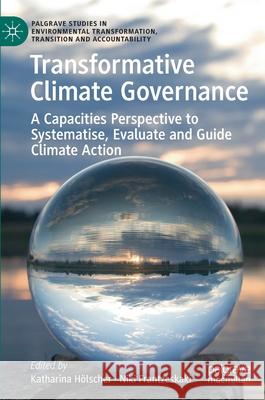Transformative Climate Governance: A Capacities Perspective to Systematise, Evaluate and Guide Climate Action » książka
topmenu
Transformative Climate Governance: A Capacities Perspective to Systematise, Evaluate and Guide Climate Action
ISBN-13: 9783030490393 / Angielski / Twarda / 2020 / 698 str.
Transformative Climate Governance: A Capacities Perspective to Systematise, Evaluate and Guide Climate Action
ISBN-13: 9783030490393 / Angielski / Twarda / 2020 / 698 str.
cena 402,53
(netto: 383,36 VAT: 5%)
Najniższa cena z 30 dni: 385,52
(netto: 383,36 VAT: 5%)
Najniższa cena z 30 dni: 385,52
Termin realizacji zamówienia:
ok. 16-18 dni roboczych.
ok. 16-18 dni roboczych.
Darmowa dostawa!
Kategorie:
Kategorie BISAC:
Wydawca:
Palgrave MacMillan
Seria wydawnicza:
Język:
Angielski
ISBN-13:
9783030490393
Rok wydania:
2020
Wydanie:
2020
Numer serii:
000841889
Ilość stron:
698
Waga:
1.00 kg
Wymiary:
21.01 x 14.81 x 3.81
Oprawa:
Twarda
Wolumenów:
01
Dodatkowe informacje:
Wydanie ilustrowane











